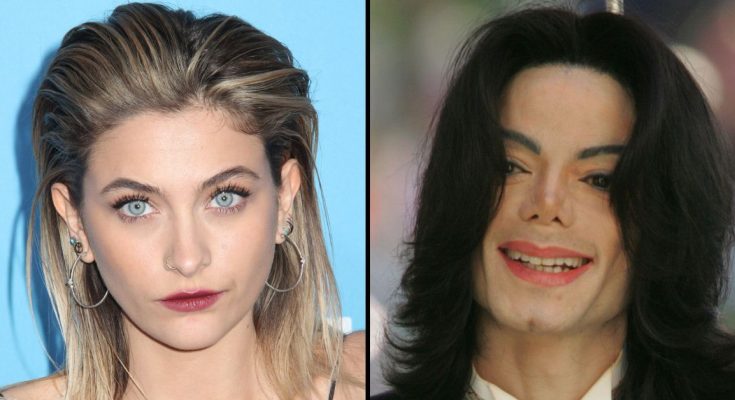Michael Jackson’s daughter Paris has revealed why she identifies as a Black woman.
The 26-year-old model and musician is the middle child of the ‘Thriller’ singer – she has an older brother named Prince and a younger brother called Bigi.
As the daughter of the ‘King of Pop’, Paris has been in the spotlight from a young age and over the years, she’s experienced many public struggles.

Paris has revealed that the paparazzi’s fixation with her father led her to experience post-traumatic stress disorder (PTSD).
PTSD is a mental health condition that’s triggered by a terrifying event – either through experiencing or witnessing it, as per the Mayo Clinic.
On an episode of Red Table Talk, Paris disclosed: “I experience audio hallucinations, sometimes, with camera clicks and severe paranoia and have been going to therapy for a lot of things, but that included.”
She added that she has been doing eye movement desensitisation and reprocessing (EDMR) therapy to help with the PTSD, describing it as ‘very effective’.
Jackson’s daughter has also been very open about her coming out experience, revealing that she doesn’t label her sexuality.
“I wouldn’t consider myself bisexual because I’ve dated more than just men and women,” she shared.

While Paris has been open about her sexuality, she says it has been difficult to talk about with her ‘religious’ family – although her brothers have been supportive.
“My family is very religious and a lot of, like homosexuality, is very taboo, so we don’t talk about it, and it’s not really accepted,” she explained to Willow Smith on Red Table Talk.
“I’ve gotten to a point where I respect them and I have love for them. I respect their beliefs. I respect their religion. I’m at a point where to expect them to put aside their culture and their religion… expectations lead to resentment. What people think about me isn’t my business.”

Like her father, Paris also has a music career, dropping an album titled ‘Wilted’ back in 2020.
She told L’Officiel Italia: “Music is like the air I breathe – it is awareness, it is being able to create something bigger than me and it is a way to express myself and externalise what I feel inside.”
Jackson found fame as a part of The Jackson 5 – alongside his siblings – and became one of the biggest solo artists of all time.
Despite later in life having fair skin, the ‘Billie Jean’ singer was African-American and had a darker complexion when he first became famous.
It has been reported that he suffered from vitiligo, a chronic condition characterised by the emergence of depigmented white patches on the skin, as per the NHS – which is what caused Jackson’s skin to go lighter as he got older.

Prior to his death, Jackson had a rare conversation with talk show host Oprah Winfrey in which he acknowledged his skin condition, saying he was proud of his African-American heritage.
“I’m a Black American. I am proud to be a Black American. I am proud of my race, and I am proud of who I am. I have a lot of pride and dignity in who I am,” he declared.
“This is the situation, I have a skin disorder that destroys the pigmentation of the skin. It is something I cannot help, OK?
“But when people make up stories that I don’t want to be who I am, it hurts me. It’s a problem for me that I can’t control.”

With Jackson’s African-American heritage in mind, Paris has now shared why she identifies as a Black woman.
“[Michael] would look me in the eyes and he’d point his finger at me and he’d be like, ‘You’re Black. Be proud of your roots’,” she recalled to Rolling Stone.
“And I’d be like, ‘OK, he’s my dad, why would he lie to me?’. So I just believe what he told me. Cause’, to my knowledge, he’s never lied to me.”

Addressing her lighter skin tone, Paris said many people presume she’s white and is ‘from Finland or something’.
She would point out that other mixed-race people look like her, including Prison Break star Wentworth Miller, who was born to a Black father and white mother.
Following these comments, Paris has been subjected to a backlash – with talk show host Wendy Williams even describing her words as ‘cute’.
“I get that she considers herself Black and everything, but I’m just talking about the visual because you know… Black is not what you call yourself, it’s what the cops see when they got steel to your neck on the turnpike,” she said.
“It’s what they see. But that’s cute and good for her.”



